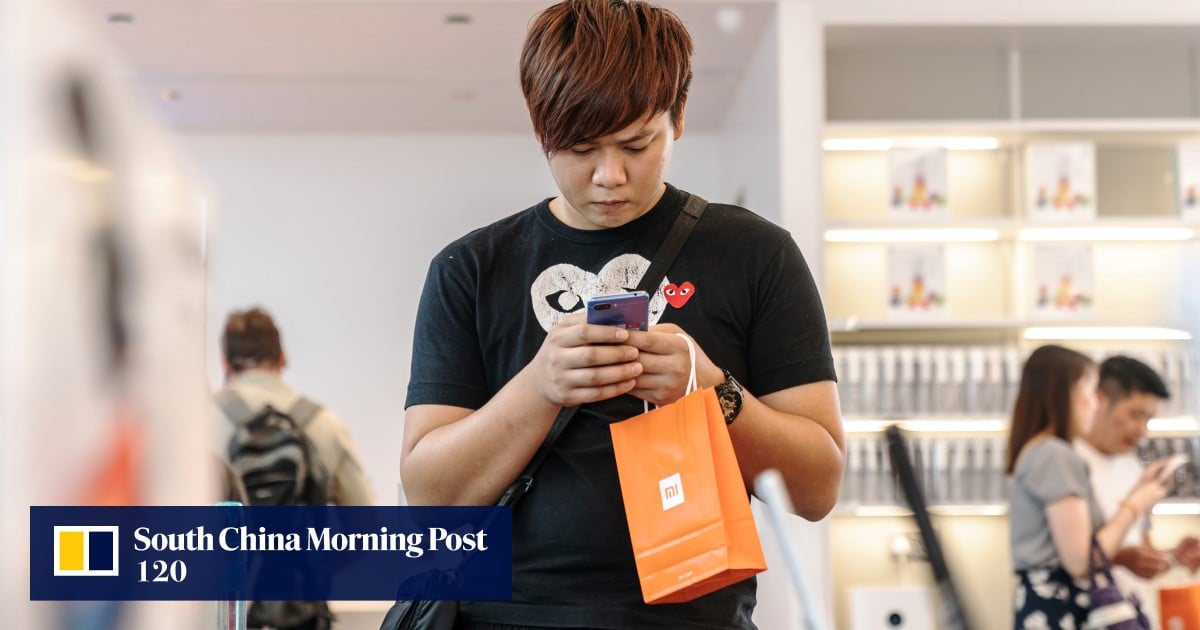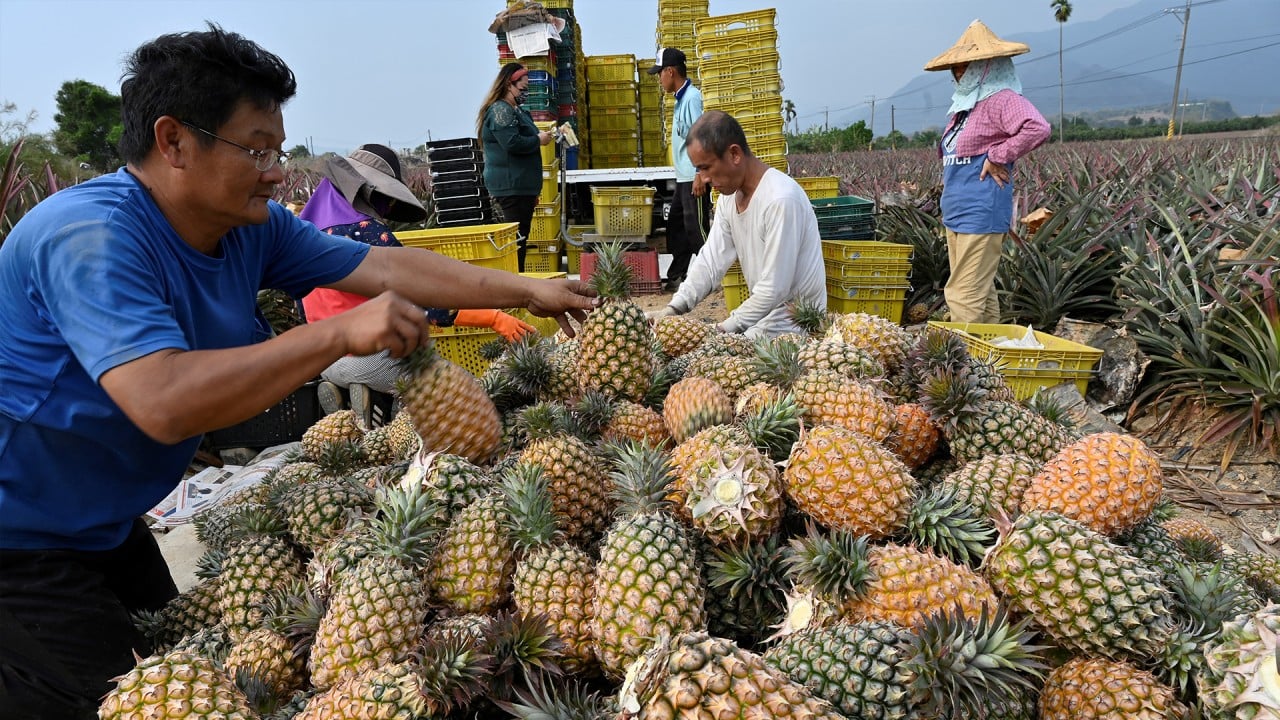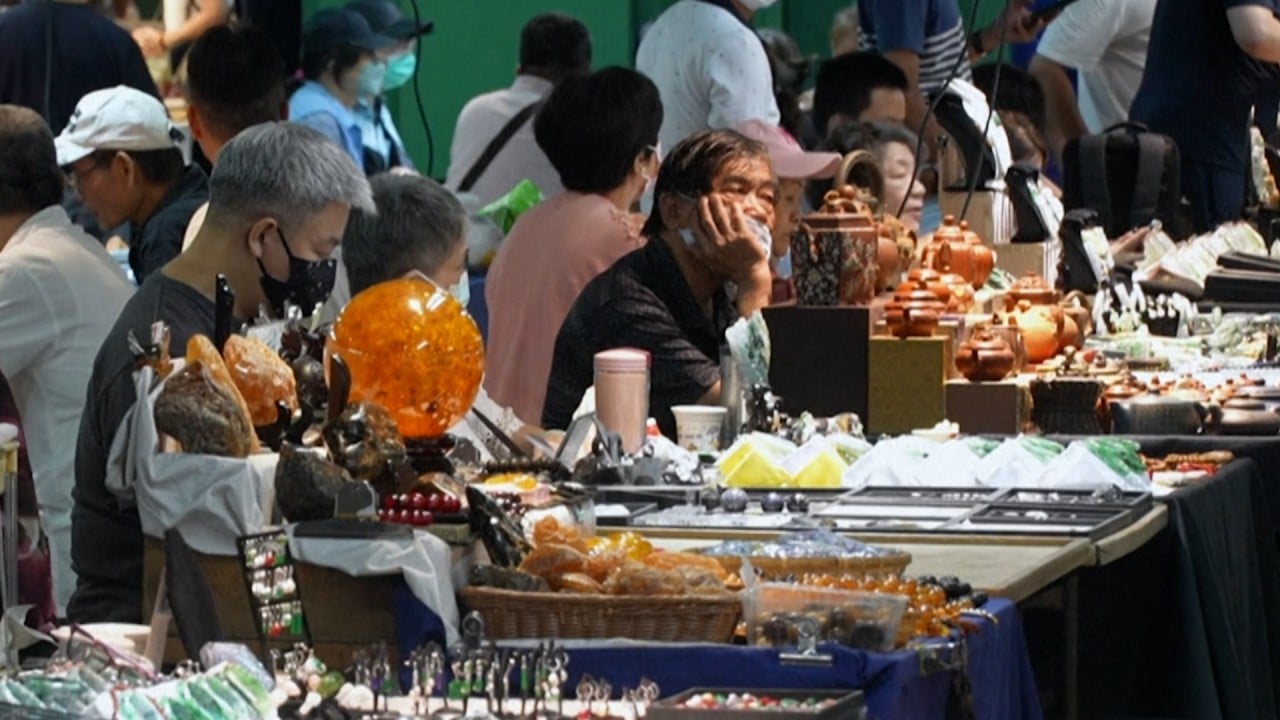Taiwanese consumers like Hsu often buy gear from mainland China when prices are low and device efficacy is sufficient to satisfy their needs, a quality widely described as cost-performance value, or just “CP value”. If not, politics may intrude.
“Even though there are some geopolitical tensions, consumers in Taiwan still buy made-in-China products as long as they are of high cost-performance value,” said Hu Jin-li, a professor with the Institute of Business and Management at Taipei’s National Yang Ming Chiao Tung University.

Fellow shopper David Tang, also 30, was at the Syntrend mall the same day in case Xiaomi, Oppo or Lenovo prices had dipped enough to overcome his less-than-rosy view of the mainland. Oppo is a Dongguan-based smartphone brand and Lenovo, headquartered in Beijing, develops PCs.
Beijing sees self-ruled Taiwan as a breakaway territory that must eventually be unified with the mainland – by force if necessary – and most countries do not recognise Taiwan as an independent state. Ties have worsened acutely over the past seven years, and some Taiwanese worry about the possibility of conflict between the two sides.
Merchandise of mainland origin often undersells competitors from abroad thanks to high levels of labour productivity and massive economies of scale.
Price and quality [matter] rather than the brand’s country of origin
Xiaomi fitness tracking bands, for instance, are “among the cheapest in the industry and priced so that they are practically disposable,” said Sean Su, an independent tech analyst in Taiwan.
Chinese consumer electronics appeal to “entry-level” consumers who are price conscious, Tang said. He has found some devices from the mainland cost as little as half what their Taiwanese and foreign peers charge.
But there is a catch, he said: “They’re OK but need to be replaced every couple of years.”
Early-stage mechanical problems such as freezing phone screens addle some Taiwanese consumers, but others do not mind replacing electronics in the event of a breakdown – especially if other functionality makes the original purchase worth it.
Aibo Tsai bought a Xiaomi smartphone in Taipei about half a year ago because of its price and specifications. It occasionally freezes, but Tsai is sticking with it.
“One of the nice features of Xiaomi phones is they still have the 3.5mm earphone plug, which I now use to connect to the car’s [auxiliary connector] for listening to music,” said Tsai, 32, a biotech mergers and acquisitions professional.
Chang Chih-pin, a 60-year-old Taipei retiree, finds the “cost-performance value” of mainland gear worth it even if it means buying replacements every two to three years.
I don’t have that much of a political feeling … China makes a lot of stuff
“So many new models come out, you’d need to replace it anyway,” Chang said. “If I need to change phones in two or three years, then I’ll change it. I just consider whether the CP value is high or not.”
He is not fazed by the origin of his current phone, also a Xiaomi, though friends had asked whether he was sure about buying a mainland brand.
“I don’t have that much of a political feeling,” Chang said, adding many goods sold in Taiwan by non-Chinese brands are made in the mainland, but consumers do not seem to mind.
“China makes a lot of stuff,” he said. For people upset about the political ramifications, he added, “If that’s your stance, then you’d better buy nothing”.
Mainland-branded goods sold in Taiwan are mainly electronics, rather than the sportswear or household appliances that have made a name for China among consumers in other parts of the world.
But product origin labels show that popular goods sold in Taipei’s discount department stores – from sports gear to stuffed animals – are made in the mainland for overseas brands.
“Price and quality [matter] rather than the brand’s country of origin,” said Adonis Chang, general manager at the Ogilvy public relations firm in Taipei.
With just 24 million people, Taiwan represents a relatively small market for offshore brands. Investment from mainland China sank to a 13-year low in 2022 in US dollar terms.
The value of Taiwan’s imports from mainland China fell to US$77.8 billion in the year ending July 31, down from US$96.1 billion the previous year and US$126.6 billion the year before that, according to Taiwanese customs data.
Mainland smartphone brands compete in Taiwan through marketing and growing their number of sales channels, said Rachael Liao, senior industry analyst with the Market Intelligence & Consulting Institute in Taipei.
Oppo, she said, has increased the number of its physical retail outlets, while fellow mainland Chinese phone developer Vivo offers co-branded accessories and maintains partnerships with Taiwanese telecoms carriers.
About half a dozen contract vendors in Guanghua Market – a bustling six-storey electronics shopping centre in Taipei – sell Oppo phones, and for four months the company has operated a branded store next to Guanghua to showcase its latest products.
Results of mainland China’s trade probe could come on eve of Taiwan election
Results of mainland China’s trade probe could come on eve of Taiwan election
Oppo began selling in Taiwan nine years ago and sees it as “one of its key markets in the world for cultivating middle- to high-end devices”, a company spokeswoman said.
“Taiwanese consumers especially pay attention to video and photo functions, and our best known video function, portrait beautification, is also very popular among women.”
Lenovo’s PCs are sold at multiple Guanghua Market stalls, along with local Taiwanese favourites Acer, Asus and MSI. Salespeople said that prices, frequency of new models and home pickup for after-sale repairs keep Lenovo competitive.
Lenovo and fellow mainland brand Huawei Technologies have a combined Taiwan PC market share of around 10 per cent due to “price advantages”, Market Intelligence & Consulting Institute analyst Angela Huang said.
I usually do not buy Chinese brands, especially electronics
Huawei laptop sales rose 45 per cent in Taiwan in 2022 and 133 per cent, year on year, in the first half of 2023, according to Taiwanese media outlets. Sales of its wearable devices rose more than 20 per cent last year.
Tech news website The Verge lists two Lenovo models and three Huawei models on its list of the world’s nine cheapest PCs.
In the software space, Shanghai-based short video platform Xiaohongshu has a following among Taiwan’s younger generation, though most of its roughly 200 million monthly active users live in mainland China.
Taiwanese users can handily follow Xiaohongshu’s Chinese-language content, while the video choices are “diverse” and “the software design itself isn’t too bad,” said Huang Kwei-bo, an associate professor of diplomacy at National Chengchi University in Taipei.
Chinese smartphone giants Huawei and Xiaomi forge patent cross-licensing pact
Chinese smartphone giants Huawei and Xiaomi forge patent cross-licensing pact
However, many Taiwanese consumers still say they avoid mainland Chinese brands. Like consumers in the UK and US, they suspect some mainland factories fail to meet labour standards or fear their devices would not be secure.
“I usually do not buy Chinese brands, especially electronics,” said Bernie Huang, 34, a Taipei high school teacher. “I am afraid that a data breach may happen and my personal information might leak.”
Statements from Beijing-wary US officials and from Taiwan’s ruling Democratic Progressive Party, which takes a guarded view toward mainland China, have prompted some of the concerns around data privacy, Huang Kwei-bo said.



